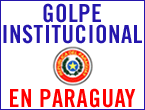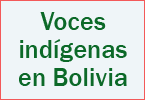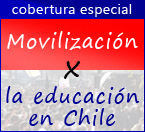| En Inglés | Nota publicada el 25/01/2012 - 16:50 hs. | |
 BRASIL-FORUM BRASIL-FORUM |
|
| Boaventura de Sousa Santos questions “green capitalism” For the Portuguese sociologist, Boaventura de Sousa Santos, the Themed Social Forum (TSF) 2012 is right in debating the capitalist crisis and the destruction of nature. However, he assures that it is necessary to go further than “green capitalism”. The intellectual considered that the United Nations Conference on Sustainable Development, Rio + 20, will be “completely dominated by ideas which don’t resolve the problems of environmental and social justice.” He thus referred to the Conference which will be take place in June in Rio de Janeiro and which will unite government representatives from around the world to tackle the climate question. Boaventura de Sousa Santos is participating this week in the Themed Social Forum. From 24th to 29th January the encounter unites social organisations, political representatives and activists in Porto Alegre, Brazil. It is about a registered body in the process of the World Social Forum and a preparatory stage for civil society to participate in the Rio + 20 Conference. Boaventura explained that the capitalist system is currently in a phase of extraction of natural resources. Principally in Latin American and Africa. In face of this, he highlighted that the TSF is a space in which to show “non capitalist” solutions for society. Among them, a solidarity economy and family agro-ecological agriculture, which contrasts the current levels of consumerism in the world He expressed that, in this context, the term “development” must be questioned. According to the sociologist, this policy has only been translated into economic growth and lacks respect for Human Rights. Boaventura highlighted that the current phase of capitalism has its origins in the neoliberalism of the 90s that defended the freedom of the markets. However, he insisted that this economic model did not guarantee “forms of return in industrial capitalism”. The intellectual went on to explain that products of primary origin, such as food, have turned into the object of speculation in a financial capitalism in crisis. For these motives, he emphasised that historical fights, such as land distribution and the defence of water, must remain central themes for social movements. (PÚLSAR) gr/ea (Porto Alegre) 25/01/2012 Translations of Púlsar′s news by argentinaindependent.com  Haga click aquí para acceder a más notas de esta Cobertura Haga click aquí para acceder a más notas de esta Cobertura
|
|
 |
||
Copyleft @2004-2010 AMARC-ALC | Rights given according to the following conditions. We thank you for citing the source. |
||











